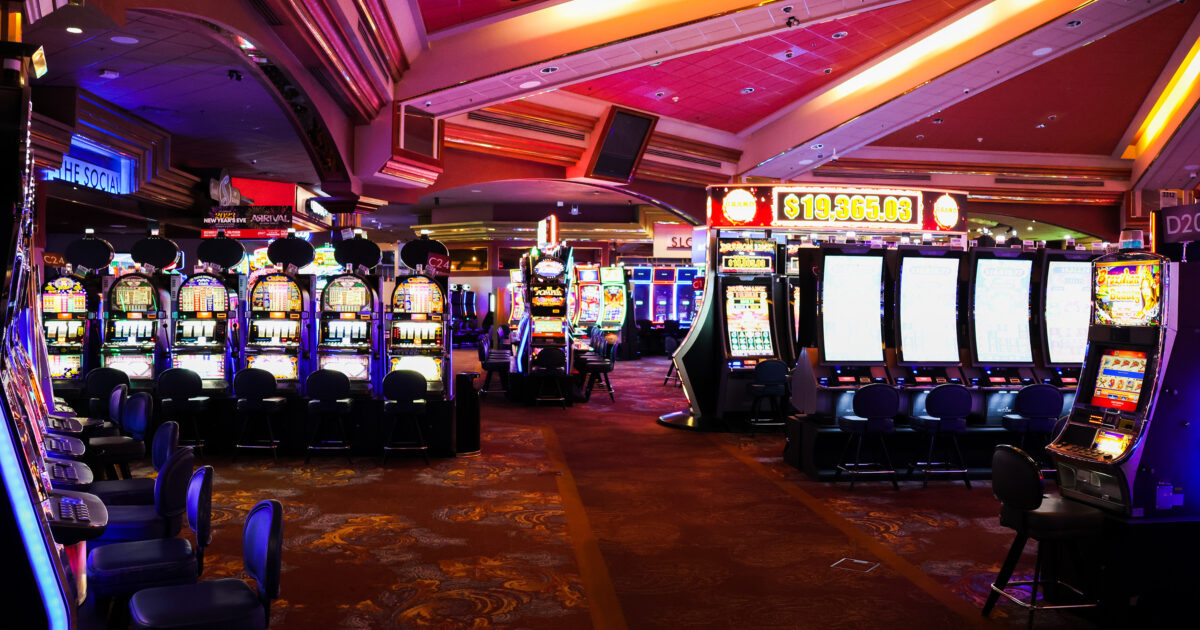
The realm of leisure has seen many changes over various decades, but not many have captured the imagination and excitement of gamers like gambling games. Emerging in the vibrant halls of Las Vegas and Atlantic City, these games have spilled over borders and societies, becoming a worldwide phenomenon. From the dazzling lights of a mega-resort to the comfort of virtual platforms, the allure of gambling games is undeniable, luring millions into a realm of chance and tactics.
As an increasing number of nations accept gambling in multiple ways, the influence of U.S. gambling is clear. They have not only influenced local gambling markets but have also inspired countless adaptations and innovations globally. Classic games such as the poker and blackjack, along with new variations, have created a common dialect of entertainment that connects across varied populations. The mix of risk, rewards, and social engagement found in these games fosters a unique sense of community, further cementing their place in the global entertainment sphere.
Cultural Overview of American Gambling Activities
American casino gambling activities have a diverse and colorful history that reflects the societal development of the U.S.. The origins of these activities can be traced back to multiple European gaming practices introduced over by colonists. Activities like the poker game, blackjack, and the roulette game found their way into the fabric of U.S. society in the 19th century, gaining fame in saloons and riverboats. These places provided the ideal backdrop for social interaction and rivalry, establishing a strong foundation for casino gambling as we recognize it today.
As the nation expanded westward, gaming evolved in tandem with it. The gold rush era in the mid-1800s saw the rise of gambling towns such as Deadwood, South Dakota and Tombstone, where games were played with high stakes, frequently punctuated by an air of disorder. This time set the stage for the formalization of casino gambling in the beginning of the 20th century, notably with the creation of Las Vegas as a gaming center. The construction of lavish casinos changed the gambling environment, creating an atmosphere where games could thrive and attract tourists from across the world.
In recent decades, the approval of casino gaming in multiple states has further diversified the range of activities available. American casinos now offer a combination of traditional gambling activities and innovative offerings that cater to contemporary players. This expansion has allowed for a unique fusion of old and new, enabling the ongoing evolution of casino gaming culture in the U.S.. The global impact of these games has also led to their inclusion into global gaming industries, demonstrating the enduring impact of American casino games around the globe.
Global Acceptance and Impact
The growth of U.S. gambling games has marked a notable shift in the international gambling landscape. With their appeal crossing borders, these games have enthralled players around the globe. From poker tournaments to slot machines, American styles have established a place in many global casinos. This transference of culture emphasizes how versatile and compelling these games are, adapting to local tastes while maintaining their timeless U.S. charm.
Additionally, the impact of these titles extends beyond conventional gambling venues. Online platforms have played a pivotal role in promoting American gambling games, making them available to players worldwide. The convenience of online gaming has introduced millions to experiences that were once confined to physical casinos. Players can now play their favorite titles from any location, sparking a fresh wave of excitement and growing the player base considerably. SV88
This widespread embrace is also reflected in the incorporation of American gambling titles into local cultures. Countries that have adopted these games often host their own adaptations and competitions, blending local traditions with American gambling traditions. This fusion not only enriches the gaming experience for participants, but it also underscores the strong impact that American gambling titles have on both leisure and social engagement across different cultures.
Cultural Adjustments and Improvements
Casino games have undergone notable changes as they expanded across various societies. Every area has taken in elements of U.S. gaming while infusing its own traditions and practices. For example, the rise of online casino platforms has allowed for the integration of local character into classic titles like Texas Hold’em and 21. Gamblers now experience variations that incorporate regional wagering styles and distinct rules, making the games more accessible and welcoming for varied audiences.
In many countries, the popularity of casino games has led to the development of localized versions that showcase cultural themes and stories. This flexibility has paved the way for creative game development that resonates with players on a individual level. Slot machines, for instance, now showcase imagery and audio that celebrate local traditions, legends, and popular culture, which in turn enhances the gaming adventure and promotes a sense of belonging among players.
Furthermore, the worldwide impact of U.S. casino games has led to new game formats and hybrid formats. Some venues have combined traditional gambling with amusement elements, such as live performances or engaging tech, resulting in a more immersive atmosphere. These innovations not only attract a wider audience but also ensure that the essence of gambling continues to evolve, bridging gaps between diverse communities while preserving the thrill that gambling games are celebrated for.
